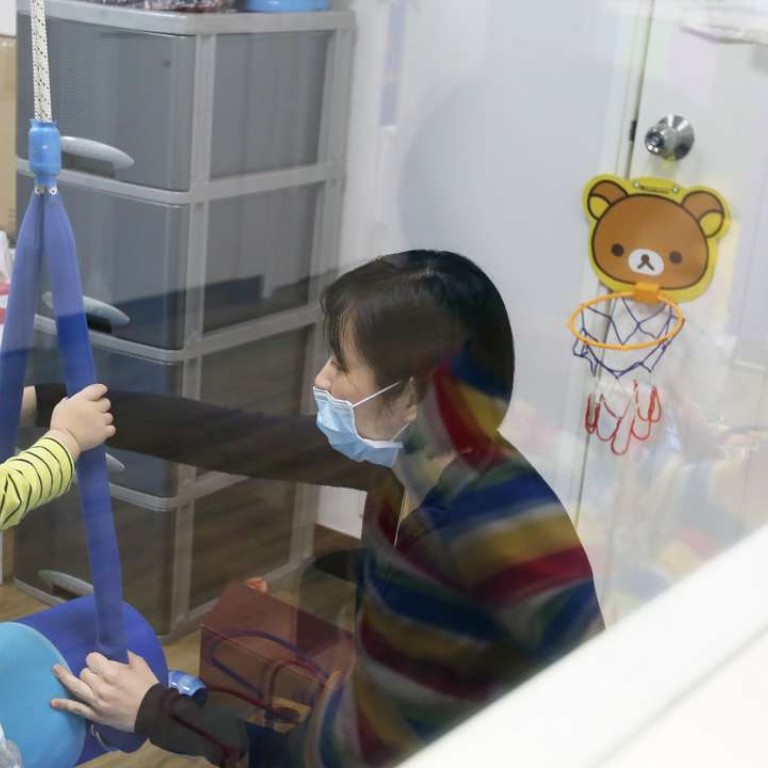
Parents of autistic kids need support too as more cases may be expected
A 2012 study found almost 60 per cent of parents with autistic kids suffer from varying levels of depression
The number of children with autism reported in public schools is expected to grow by a third to more than 10,000 next year, up from 7,200 last year, according to statistics from the Education Bureau, and experts are calling for more government support for parents of autistic kids.
The figure also does not include data from private schools.
According to concern groups, current support has only been geared towards patients, and waiting time for government-subsidised rehabilitation services, including those for pre-schoolers, is too long.
“There is a large demand for support services, and families often face immense pressure, but there aren’t many services dedicated to the needs of parents,” Sandra Tsang Kit-man, an associate professor from the University of Hong Kong’s department of social work and social administration, said in an interview on Commercial Radio on Sunday morning.
Support of autistic patients should be continuous and family-centred
While there were 7,200 school children diagnosed with autism in 2015-2016, Tsang expected the figure would exceed 10,000 in 2017-2018.
She said the increase aligned with global trends for the condition.
The comments came after a 61-year-old father was sentenced to four years jail on Thursday for killing his autistic 15-year-old son. The jobless man had slashed the boy about 100 times, because he wanted to ease his family of the “burden”. The man had also attempted to take his own life after killing his son.
The case was described by the judge as “a tragedy no matter the angle and direction it is viewed from”.
Nancy Tsang Lan-see, director of Heep Hong Society – which provides professional training and education to children of different abilities and their families – said: “Support of autistic patients should be continuous and family-centred.”
Tsang said support services are limited to only the early and later stages of autistic sufferers. Children often have to wait for 18 months to two years for rehabilitation services even if their condition was diagnosed from between birth and six years of age.
Such children also have to endure long waits to get into government-subsidised programmes after graduating from schools, Tsang pointed out.
Helping autistic patients keep their jobs in ordinary settings has also been a challenge as they may have weak social skills, she added.
“Even if employers are willing to hire them, colleagues might find them strange,” said Tsang.
All this pressure can be distressing for parents of autistic children. Tsang further cited a 2012 study showing that almost 60 per cent of parents with autistic kids suffer from varying levels of depression.
“While we are taking care of autistic kids, we should also support the entire family including their parents,” she said.
Psychiatrist Dr Tsang Fan-kwong suggested parents try to maintain their social lives, such as seeing friends regularly, and meeting other parents with similar situations who can empathise.
“They would often feel better if being supported by people with a similar background,” Dr Tsang said.

